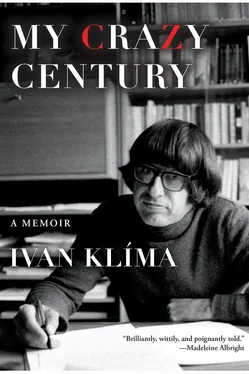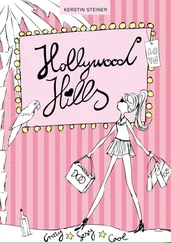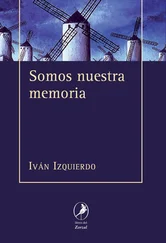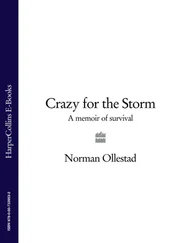He took from his wrist a copper bracelet embossed with grape clusters and rose blossoms and handed it to me to show what he used to do. He added that they’d sent him here as punishment for attending Mass on Sundays.
Here Mass is celebrated only once a month, but on the other hand you’re closer to God. Or at least the sky.
I went back to the farm. Only the brunette with the wet towel on her head was there. She gave a sigh of apology, since she obviously looked so awful. She knew she shouldn’t drink that much, but just let him try to tell her what to do. She opened one of the wardrobes and pulled out a bottle of rum and two mustard glasses. I said I didn’t drink, and she poured one for herself. “I can’t work anyway.” She pulled up her military shirt, which was buttoned this time, and I saw on her belly a bloody, inflamed gash. She explained that they’d been fighting a bit. She’d probably gotten this from a pitchfork. She didn’t remember much of what had happened. I asked if she’d seen a doctor. She waved her hand. She wouldn’t get any sick leave, so what was the point? Again she offered me a glass of rum, and when I refused, she drank it. Then she stretched out on the bed, stared at the ceiling covered with cobwebs and damp plaster, and after a moment said, “I’ll kill myself someday anyway. But before that I’m going to break somebody’s jaw. I can’t stand guys. Especially those clever swine who sent us to this shit hole.”
Right away the next day I wrote a somewhat moralistic article in which I claimed that the brigade workers here, who had been dispatched into unexpectedly arduous circumstances, felt like outcasts. They had no idea how to live or work in these new surroundings, so they drank or they tried to save themselves by running away. At the editorial office, they were appalled. I was told that if I was going to mention the negative aspects, I had to balance them out with something positive. Then they asked if I’d stopped by the district secretariat of the Union of Youth. I admitted that I hadn’t. After that they talked on the phone for a long time and then advised me to go to Dolní Krušec, where brigade workers were fulfilling the plan by 212 percent.
Thus I received my first lesson concerning what you were allowed or, rather, what you were forbidden to write about if you wanted to get your reportage published.
So what could I write about? Where was the border of what was allowed? Was it the duty of every journalist or writer to offer up only praise, only confirm the image of a society where, except for a few enemies and conspirators, everyone was enthusiastically building socialism?
It occurred to me that instead of an article, I could write a short story about the brigade I saw in the Kašperské Mountains. I composed it in one rather protracted evening. I invented a teacher and had her tell the story of her experiences on the brigade. In a remote spot where the workers were toiling away, morale was gradually disintegrating. Then a young boy got blood poisoning and had to be taken immediately to the doctor in town. The telephones were not working, and the only means of transportation was a tractor that the brigade workers had received for their labor. Unfortunately, at this critical moment the driver was so drunk that he couldn’t get up from his chair in the pub. The teacher finally got behind the wheel of the tractor and drove the boy to the doctor. Everything ended happily and moreover brought the brigade workers around to see the error of their ways. Even though I had invented the entire story, including the happy ending, I thought I had actually said something about reality. In a paroxysm of pride, I took the story to Literární noviny, which I considered the most dignified literary platform.
To my surprise, the editors asked to publish my story under the title “Far from the People.” Neither they nor I suspected that, despite the double happy ending, it could provoke the party overseers. But nonetheless I allowed myself to describe how the brigade workers were starting to get drunk and lose the sense of purpose of their activity.
Perhaps you cannot imagine those long evenings in April and May. Not a soul outside, just rain and wind — and inside? Some go to the pub, others stay inside and remain silent. . I wanted to read, and then I was struck by the thought: Why should I read? Perhaps there are others who think everything here is pointless and without purpose — even work, because for us it has ceased to be something valuable. . None of us, after all, lives only to work off his hours in the field. . Everything is done for the people. . and at the same time you see how people are going to seed before your very eyes. What are we doing here? If I had to live like this for a year or two, I would probably say: Why live at all?
I was called to a meeting of the editorial board where the chair of the Writers’ Union himself, Jan Drda, would be speaking. The famous Jan Drda tried to analyze the subject of my prose. He said that I was obviously a talented and, in view of my youth, a promising author. He also praised my attempt to compose a story about the present day. But was reality actually so dreary? Can we really say that our young workers are losing their sense of the meaning of life, that the result of their collective effort is the question: Why live at all?
*
Father finally returned. This time there was no big family celebration. Aunt Hedvika stopped by with some real Russian pierogi filled with ground meat and cabbage.
Father ate them with relish and recounted his experiences to us as if he had just returned from foreign parts. He had spent the last three months with some convicted monks, a scout leader, and real-live thugs. The monks were truly saintly people who hadn’t done anything wrong. Everyone in prison says he’s innocent, though; even the safecracker or the accountant who had embezzled nearly a hundred thousand crowns had said he was innocent. But those monks were guilty of nothing except having at one time entered a monastery and then refused to renounce their beliefs.
Only now did we learn that they had held Father for nine months in solitary confinement and the whole time kept trying to convince him that if he wanted to get out of there he would have to confess to sabotage. They managed to turn everything he had accomplished into proof of his intention to undermine the building of socialism. They wanted to know why he wanted flee to England to escape Hitler and not go to the Soviet Union. According to them he had joined the Communist Party in order to undermine it sometime in the future. He had been severe on his subordinates because he wanted to discourage them and thereby ruin their work. He had given them such demanding tasks so they wouldn’t be able to fulfill them and thereby would disrupt the five-year plan. And he’d convinced his cronies (that’s how they referred to the other members of my father’s team) to help him create erroneous calculations so that his motors wouldn’t function properly. The other four saboteurs in his group had already confessed and were sorry that they’d allowed themselves to be led astray by him.
When he insisted he’d never purposely calculated anything incorrectly, they had him taken away. Then for perhaps a week nothing would happen, but then they would come for him in the middle of the night and repeat the same thing until morning. And then the entire next day. They took turns assuring him that they would hold out, not him. And from the very beginning they had kept telling him that he was lucky — prisoners were no longer beaten.
In the beginning, when he wasn’t being interrogated, he kept trying to come up with a way to convince the inquisitors of his innocence. Finally he understood that they weren’t interested in the truth. Their job was to get a confession out of him, and they had plenty of time. He also started to understand that the same thing was taking place in all cases like this. They forced people to admit to crimes they hadn’t committed. It didn’t make sense to befoul his mind and waste time trying in vain to convince them. He couldn’t write because they wouldn’t give him pencil or paper. Fortunately he’d always had an excellent memory, so he started recalculating his design, trying to figure out if there had been any errors. It was taxing, but it also relaxed his mind, and he was proud he could manage even complicated calculations without a slide rule.
Читать дальше












